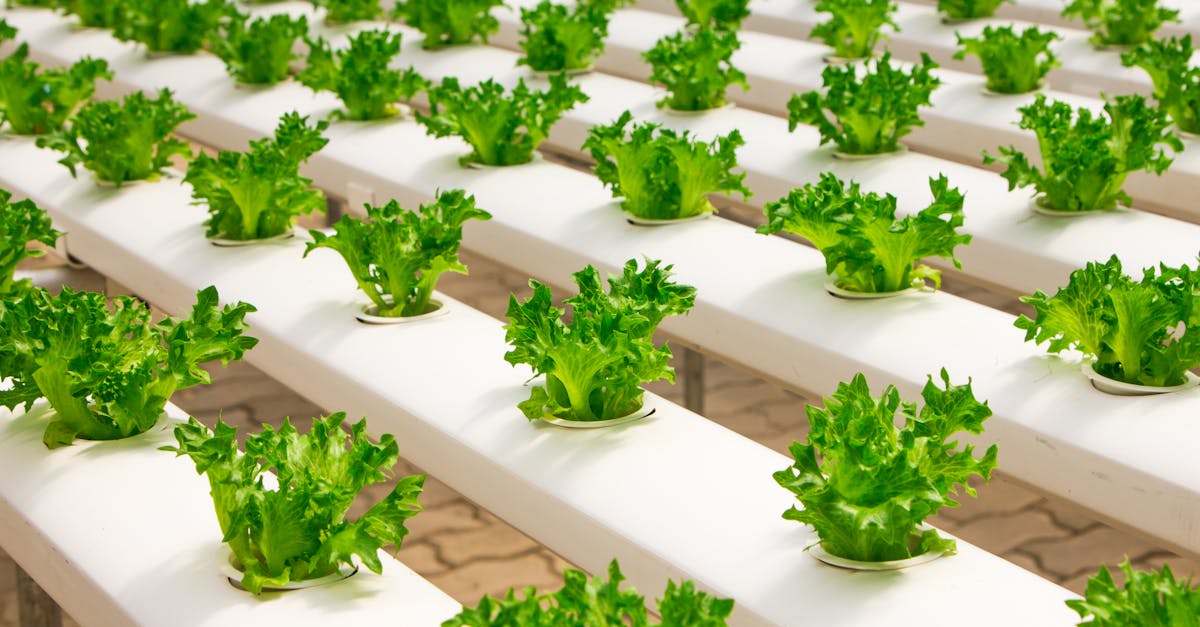Looking to enhance your gardening game? We’ve got you covered with the ultimate guide to the best hydroponic vegetables.
In this text, we’ll study into the top picks for hydroponic veggies that thrive without soil.
From crisp lettuce to vibrant tomatoes, we’ll investigate the most rewarding options for your hydroponic setup.
Get ready to figure out the key to growing nutrient-rich produce right in your own home.
Stay tuned as we dissect the secrets to cultivating a bountiful harvest of the freshest and most flavorful hydroponic vegetables.
Let’s immerse and unlock the potential of hydroponic gardening together.
Key Takeaways
- Hydroponic gardening offers benefits such as water efficiency, space savings, faster growth, year-round harvest, no weeding, pest control, and nutrient control.
- Top hydroponic vegetables to grow include lettuce, herbs (like basil and cilantro), tomatoes, bell peppers, and cucumbers.
- Important factors for ideal conditions in hydroponic gardening are lighting, temperature, humidity, nutrient solution balance, pH levels, and air circulation.
- Nutrient solutions for hydroponic vegetables should contain balanced levels of important nutrients like nitrogen, phosphorus, and potassium.
- Regular maintenance tips for hydroponic gardens involve providing adequate lighting, controlling temperature and humidity, maintaining nutrient solutions, monitoring pH levels, and ensuring proper air circulation.

Benefits of Hydroponic Gardening
When it comes to hydroponic gardening, there are some fantastic benefits to enjoy. Let’s jump into why we love this growing method:
- Water Efficiency: Hydroponic systems use 90% less water compared to traditional soil gardening.
- Space Savings: With vertical hydroponic setups, we can grow more veggies in a smaller area.
- Faster Growth: Plants in hydroponic systems grow 30-50% faster than in soil.
- Year-Round Harvest: We can enjoy fresh produce regardless of the season.
- No Weeding: Say goodbye to time-consuming weeding tasks.
- Pest and Disease Control: Less chance of pests and diseases affecting our plants.
- Nutrient Control: We have total control over the nutrients our plants receive.
Ready to take your gardening skills to the next level? Check out this article on the benefits of hydroponic gardening for more in-depth information!
Why wait? Jump into the world of hydroponic gardening today and reap the rewards of fresh, homegrown vegetables.
Top Hydroponic Vegetables to Grow
When choosing hydroponic vegetables to cultivate, it’s important to consider varieties that thrive in this soil-less system. Here are some top picks for your hydroponic garden:
- Lettuce: One of the easiest and quickest-growing vegetables in hydroponics. It’s perfect for beginners.
- Herbs (Basil, Mint, Cilantro): Flavorful and aromatic herbs flourish in hydroponic setups.
- Tomatoes: A popular choice due to their versatility and high yield potential.
- Bell Peppers: Vibrant peppers can be grown successfully in hydroponic systems.
- Cucumbers: Refreshing and easy to grow, they thrive in hydroponic environments.
Whether you’re a seasoned gardener or just starting, these vegetables are excellent choices for your hydroponic garden. Happy growing!
For more in-depth information on hydroponic vegetables, visit University of Florida’s Hydroponic Vegetable Production.

Ideal Conditions for Hydroponic Vegetables
When growing hydroponic vegetables, maintain the ideal conditions to ensure healthy and vigorous growth. Here are some important factors to consider:
- Lighting: Provide adequate light for photosynthesis. LED grow lights are a popular choice for indoor setups.
- Temperature: Keep temperatures between 65-75°F for most hydroponic vegetables.
- Humidity: Maintain humidity levels around 60%.
- Nutrient Solution: Ensure the correct balance of nutrients in the water for optimal growth.
- pH Levels: Monitor and adjust pH levels to around 5.5-6.5 for nutrient absorption.
- Air Circulation: Promote good air circulation to prevent mold and mildew.
For more in-depth information on the ideal conditions for hydroponic vegetables, check out this resource.
After all, creating the perfect environment will result in bountiful harvests of fresh, homegrown vegetables.
Nutrient Solutions for Hydroponic Vegetables
When it comes to hydroponic vegetables, ensuring they get the right nutrient solutions is key. These solutions are the plants’ food, and without the proper balance, they won’t thrive.
We need to pay attention to the balance of important nutrients like nitrogen, phosphorus, and potassium. These help support growth and development.
After all, different vegetables require varying nutrient ratios at different growth stages. It’s critical to adjust and monitor these changes regularly.
To make sure our hydroponic vegetables are getting what they need, consider using a quality hydroponic nutrient solution. Brands like Advanced Nutrients and General Hydroponics offer reliable options.
For more in-depth information on hydroponic nutrient solutions, check out this article from University of Florida Extension. They provide valuable insights on creating the perfect nutrient mix for your hydroponic setup.

Maintenance Tips for Hydroponic Gardens
When maintaining hydroponic gardens, it’s critical to keep a few key points in mind. Here are some important tips to ensure your hydroponic vegetables thrive:
- Lighting: Provide adequate light for plant growth, considering both intensity and duration.
- Temperature and Humidity: Control these factors to create an optimal growing environment.
- Nutrient Solution: Ensure a balanced nutrient mix, monitoring levels regularly for healthy plant development.
- pH Levels: Maintaining the correct pH range is important for nutrient absorption.
- Air Circulation: Promote good airflow to prevent mold and mildew issues.
For more in-depth guidance on creating the perfect nutrient mix for your hydroponic setup, check out this resource from the University of Florida Extension.
